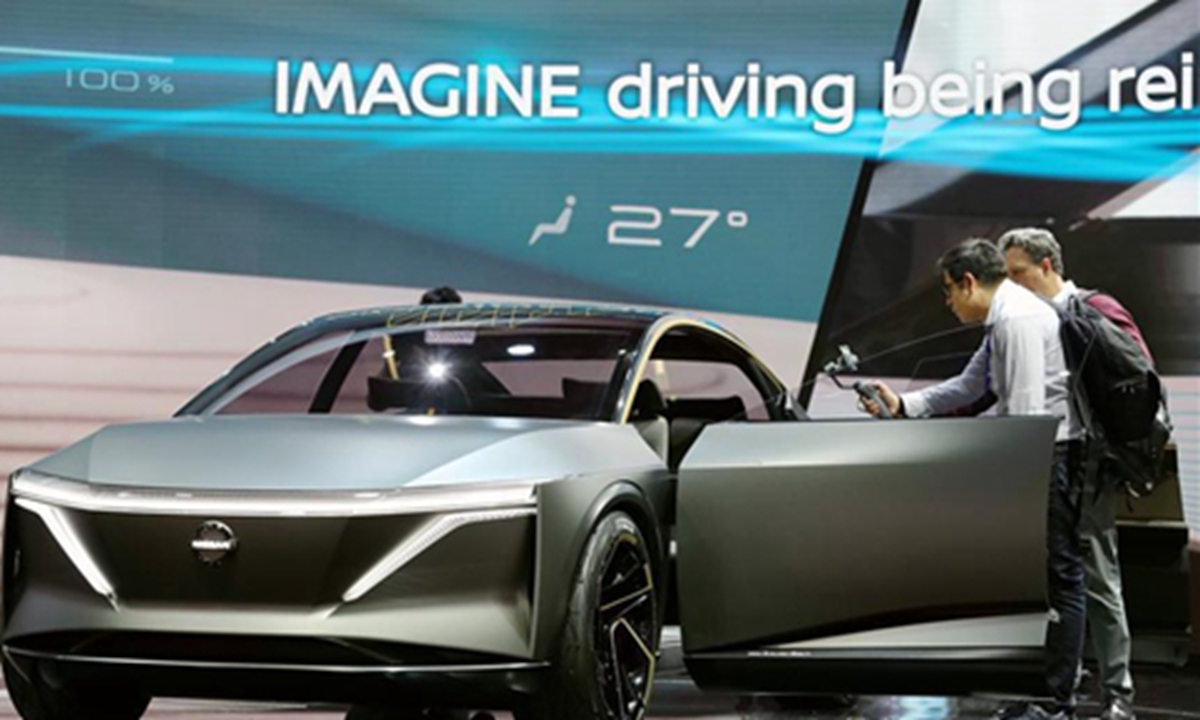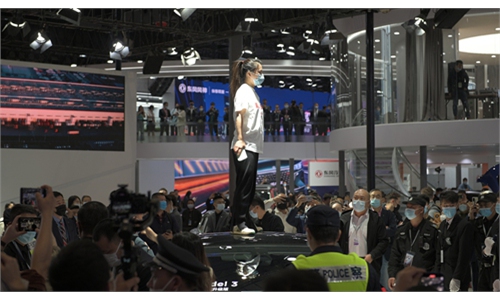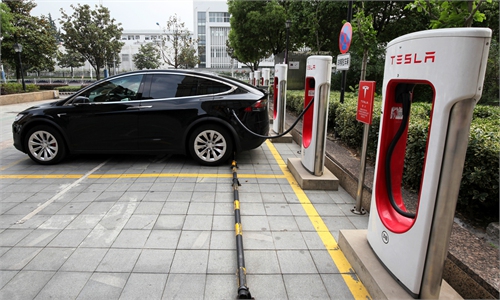
Photo taken on Jan. 15, 2019 shows a Nissan EV concept vehicle IMs at the 2019 North American International Auto Show (NAIAS) in Detroit, the United States. The annual Detroit auto show opened Monday and will last till Jan. 27. (Xinhua/Wang Ping)
The Detroit Auto Show, long a dead of winter mainstay that drew car industry brass and international media to the US' "Motor City" ahead of a big public expo, will convene next week for the first time since the COVID-19 pandemic.
The event, reconceptualized as a partly outdoor gathering, will spotlight the growing class of electric vehicles (EV) that are beginning to hit showrooms.
With no Detroit show after 2019, event organizers tout a chance for media and the public to check out vehicles that they may have only seen virtually.
In its peak years, the January event was known for free-flowing champagne and fancy nibbles as CEOs from Detroit's "Big 3" and international giants like Toyota and Mercedes-Benz unveiled sparkling new four-wheel offerings.
Architects of the event, officially called the North American International Auto Show, are not trying to replicate the panache of the show's earlier incarnation in light of profound changes since the last show in 2019.
"You can't keep doing what you did," Rod Alberts, executive director of the Detroit Auto Dealers Association.
But there is a paucity of major new vehicle reveals, partly because foreign brands that once competed with Detroit's Big 3 aren't presenting.
Detroit is far from the only show facing existential questions.
The Geneva auto show was canceled in 2022 for the fourth time in a row and will relocate in 2023 to Doha, while the Frankfurt show moved to Munich and was reconfigured as a "mobility" event.
One major change concerns vehicle launches, with automakers discovering during the pandemic the benefits of virtual unveilings, which are cheaper than big auto shows that force them to compete for attention with other automakers.
Analysts expect shows to continue to evolve from being media spectacles and revert to their original function for consumers to check out vehicles.
"It's still important as a consumer experience, a place where there's no pressure and you can just see the vehicles," said Jessica Caldwell, executive director of insights for the automotive research company Edmunds.
AFP


